Meet the Couple Behind Northeast Oregon's Farm and Forge to Table Cookware
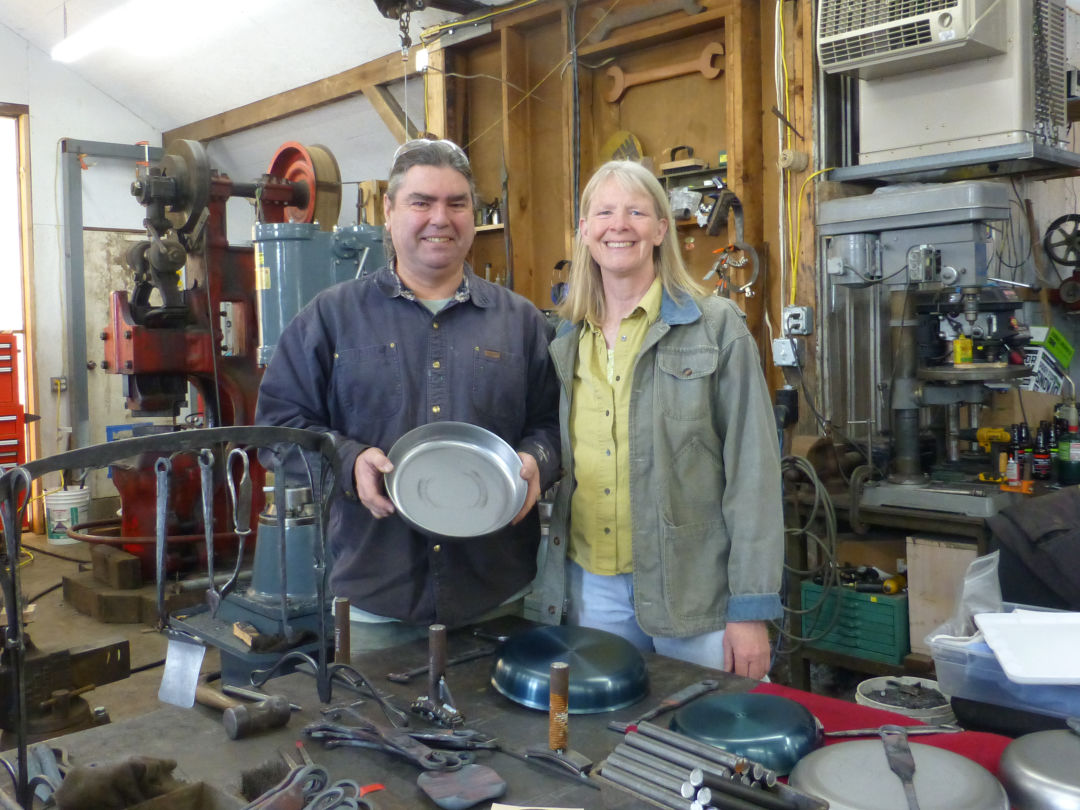
Peter Clark and Sue Miller in their shop at Homestead Springs Farm & Forge in Northeast Oregon.
Peter Clark and Sue Miller founded Northwest Skillet Company in 2014 because of their passion for making things by hand. Their farm, Homestead Springs Farm & Forge, is tucked away in Northeast Oregon’s Blue Mountains, where they work tending animals, forging cookware, and, of course, cooking.
“The New Old Thing”
Northwest Skillet Company makes a full line of hand-forged cookware. Their flagship pans feature carbon steel, what they like to call “the new old thing.” Lightweight and versatile, today’s carbon steel is the preferred all-purpose pan used by restaurant chefs, and for good reason. Carbon steel offers a combination of traits ideal for fast-paced kitchens: they’re lightweight and durable and they’re quick—even heat transfer expedites high-quality sautéing, searing, and simmering and allows you to stop the cooking process with equal speed.
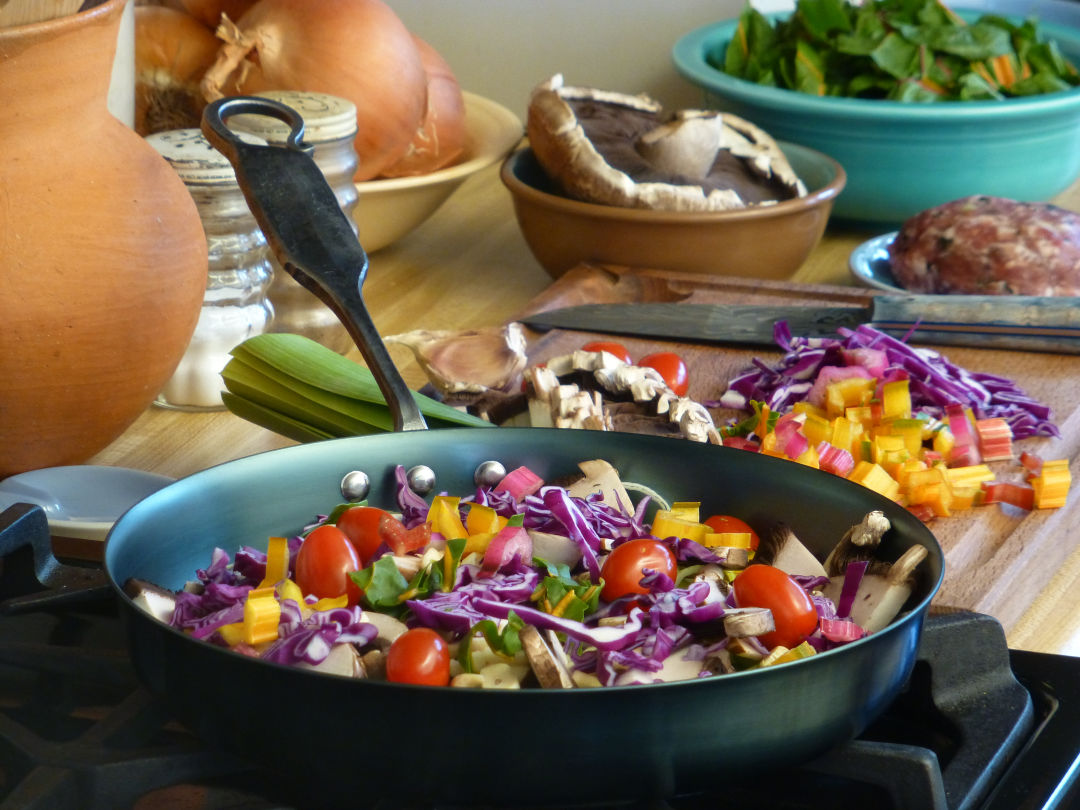
Northwest Skillet Company produces hand-forged heirloom-quality carbon steel pans that are ideal for all kitchens.
Home cooks are rediscovering carbon steel as the pan they didn’t know they needed. Northwest Skillet Company takes pride in producing a particularly unique version. With hand-forged handles available in three different designs and hand-spun pans in a variety of sizes and shapes, their products are a nod to millennia of traditional cookware. Each carbon steel (and copper) pan they sell is crafted using the same fabrication techniques pan makers have used for hundreds of years, and which result in heirloom-quality pieces.
Carbon steel is the original non-stick surface. Like cast iron, a well-seasoned pan means you can avoid tech-coatings that release chemicals or eventually wear away with use. Unlike cast iron, with carbon steel you can skip the pre-seasoning step (as long as you follow a few basic rules) and maintain a natural non-stick surface simply by cooking on it.
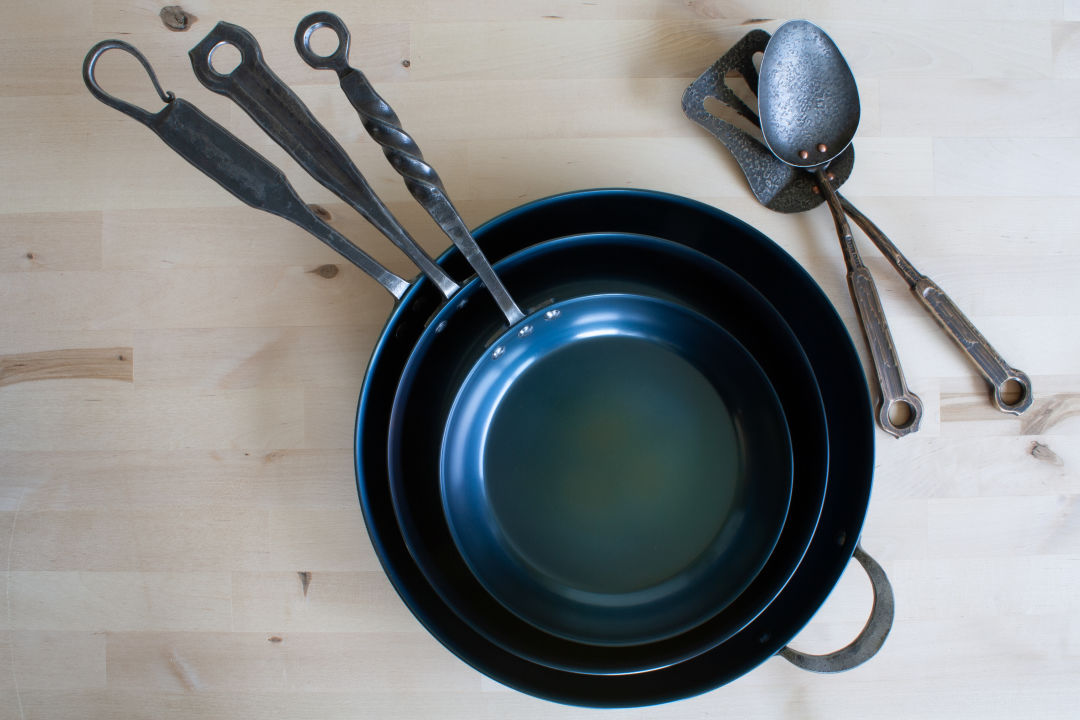
Clark makes each skillet by hand, using the same fabrication techniques pan makers have used for hundreds of years.
Beauty Counts
Clark was introduced to metalwork when he studied sculpture at Sonoma State University. What started as an interest in business became an art degree as he spent more and more time in the bronze studio. As he branched out to blacksmithing, Clark tinkered with the idea of cookware.
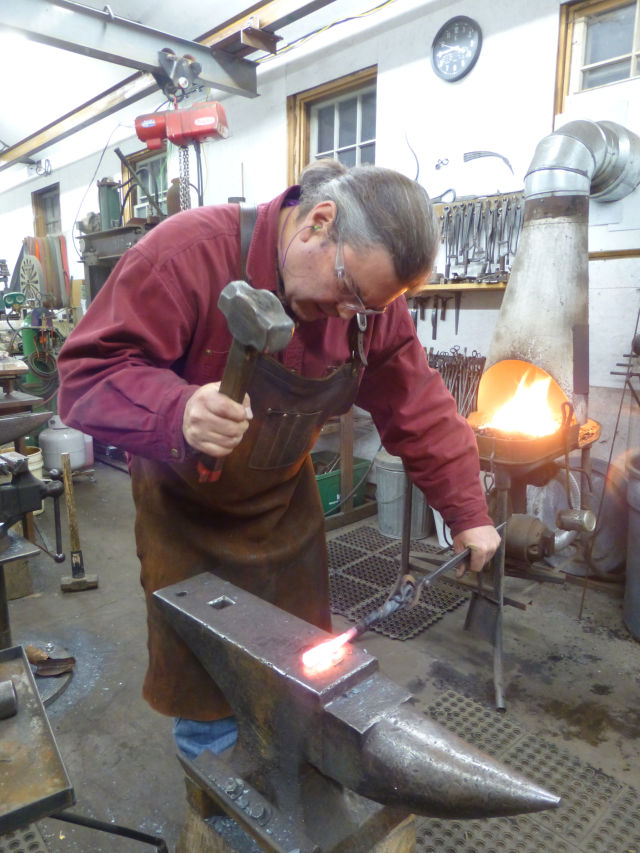
Clark working in his shop at Homestead Springs Farm & Forge
“While I attended school, I also made a living installing custom kitchens,” he said. “People would select incredible woodwork, stone counters, top notch faucets and stoves, but then they stocked the kitchen with off-the-shelf pans. In these gorgeous, enviable spaces, cookware was always the afterthought.” Clark began experimenting with sauté pans, seeing them as a potential way to combine his interest in functionality and aesthetic.
The result is cookware that makes beauty a part of its purpose. Clark’s skillets move seamlessly from stovetop to oven to grill (or even the campfire), but they also have a place at the table, where their timeless design holds its own. They look like art because they are: each one is made by hand and by eye. “I use little in terms of measurements or templates—each piece is a little different, like a fingerprint.” It’s this singularity that Clark considers essential to his work: “I could make the process more automated, but I like the intuitive quality of it, the ‘mark of the maker’ that art is so good at facilitating.”
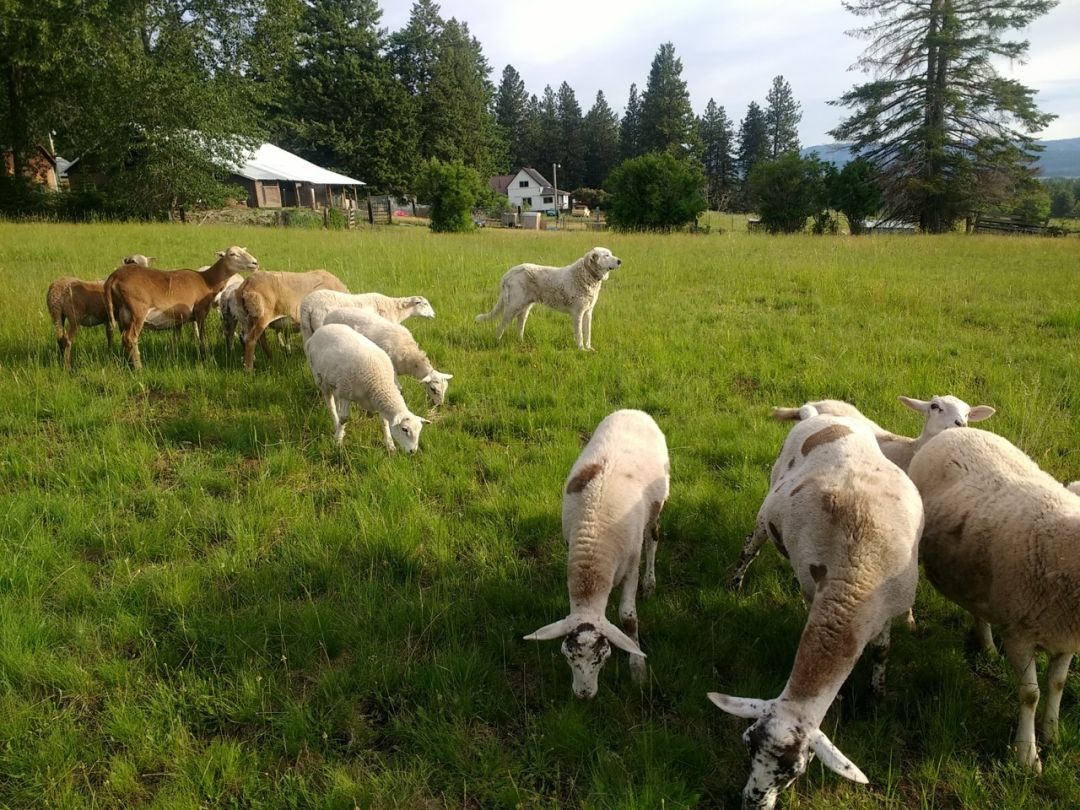
Miller also works tending animals at Homestead Springs Farm & Forge, meeting the standards of regenerative agriculture.
Raise It, Cook It
Animals are a big part of life at Homestead Springs Farm & Forge. Miller grew up on a small farm in Western Washington where her family grew much of their own food. She continues that tradition at Homestead Springs by raising grass-fed lamb, pastured poultry, and pork—all meeting the standards of regenerative agriculture, which focuses on improving soil quality and ecological balance. In the fall, she sells shares of pork and lamb (now is the time to reserve one), and she recently launched a new product: leaf lard.
“Lard is a great example of what we’re trying to do with our products, by bringing an old-world technique into modern kitchens,” said Miller. No longer the ubiquitous pantry staple it once was, lard harkens back to a time when families raised a pig or two each year for its many useful bi-products. One is a high-quality fat that is virtually flavorless, ideal for all types of cooking, and guarantees extra-flaky pie crust.
“The goal of our farm is to make the most of what we have right here,” she says. “Pastured meat, leaf lard, and our hand-forged pans all contribute to that effort.”
For more information about Northwest Skillet Company, visit northwestskilletcompany.com.




